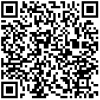What is Exercise echocardiogram (stress echo)?
Exercise echocardiogram (Stress Echo) is a test that is used to assess the heart function under physical stress. It is used to assess how the heart is pumping, how the muscles and valves are working and if there may be any signs of blockages and narrowing of arteries.
How does it work?
There are two stages to this procedure.
Stage One. The first is to have an ultrasound done of your heart in a resting position. You will be asked to lie on an ultrasound bed whilst the ultrasound takes place. It is a non-invasive procedure; you will have an ultrasound gel put on your chest then a technician will use the probe and press to your chest in specific places to gain the reading.
Stage Two. The second stage is to have an ECG whilst you are exercising on a treadmill or if you are unable to use a treadmill, we have an ergonomic bike.
To set this test up you will firstly have electrode gel tabs applied to your chest, then leads will be attached to the electrodes with those being attached to the ECG Monitor. Once this is complete you will now be asked to get on a treadmill or bike. If you are on the treadmill speeds and inclination will vary. If you are on the bike the speed will be varied. This is done so your heart can be monitored at slow, normal, and fast pace whilst you are exercising on the treadmill. You will be monitored the whole time by your healthcare professional and will be able to communicate with them if you are feeling any discomfort.
What do I have to do first?
Make an appointment first. This test will be carried out in our clinic.
What do I need to do before my appointment?
Preparation for your appointment is important.
Loose clothing and walking or running shoes. Make sure you are wearing loose fitting clothing that can be easily removed.
Attachment of the electrodes. Do not use talcum powder or creams or body lotions before your appointment, these may lessen the adhesion of the tabs/electrodes. Males may need to shave small parts of their chest to ensure the electrodes/tabs will stick to your chest.
Eat sensibly. Do not eat a heavy meal 2 hours before your appointment. No alcohol or caffeinated beverages to be consumed.
Medication. Advise your doctor before you come for the test what medications you are taking. Follow your doctor’s advice as some medications may interfere with results.



